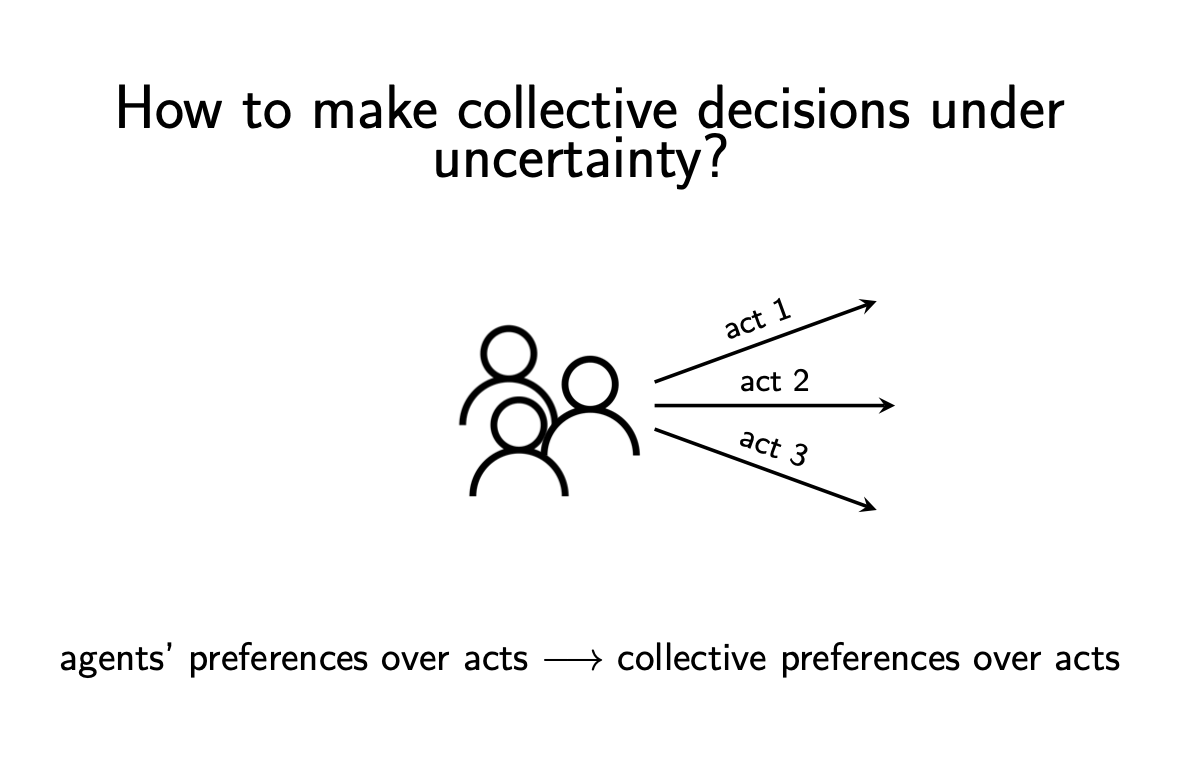Belief-Averaging and Relative Utilitarianism
Journal of Economic Theory, 198, 2021
[pdf]

We consider social welfare functions when the preferences of individual agents and society maximize subjective expected utility in the tradition of Savage. A system of axioms is introduced whose unique solution is the social welfare function that averages the agents’ beliefs and sums up their utility functions, normalized to have the same range. The first distinguishing axiom requires positive association of society’s preferences with the agents’ preferences for acts about which beliefs agree. The second is a weakening of Arrow’s independence of irrelevant alternatives that only applies to non-redundant acts.
